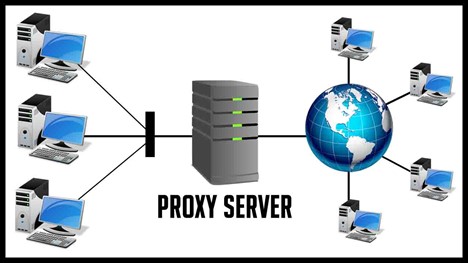An ever-increasing Internet influence simplifies our lives as much as possible, yet it also drags more attention to privacy issues, as the sensitive data of the users may be collected and used for business purposes. An increased demand for personal data isolation and security created a concept of proxy servers, which are used to establish a protected environment for every user, and thus, keep their anonymity level.
Let’s discover what the proxy servers are, and how they can improve the quality of the web surfing experience.

What Are the Proxy Servers?
Proxy servers, or proxies, are like checkpoints or intermediaries between the users and the Internet. They accept the requests from the users and forward them further to the Internet. When the request is being sent, the proxy server conceals all the sensitive data the user might expose, not letting the third-party companies collect it for their purposes.
The residential proxy accepts the request from the user, directs it to the pool of IP addresses, chooses one randomly, and sends the request to the target website. When the users buy fast residential proxy, they establish a new level of data privacy and security of Internet connection.
Types of Residential Proxies
A static proxy allows Internet access from a unique IP address, which is assigned through the data center. It is also commonly known as a sticky IP address, as it can be used for as long as its owner needs. Static proxy is all about quality, as the users work with a high-speed connection and good bandwidth, while still maintaining anonymity. With static proxies, it is important to come up with certain strategies for using proxies to avoid IP bans.
A rotating proxy is a gateway to the pool of IP addresses, which are interchanged at certain intervals (fixed or random). The rotation is done after every request, or every few minutes, which depends on the planned activity of the users.
Rotating proxies provide a better level of security and anonymity, as long as the requests are sent from different IP addresses, and are not related to any specific geo-location.
What Are the Residential Proxies Used For?
Residential proxies are widely used in e-commerce structures, as they help to keep tabs on the ever-changing competitor’s environment.
1. Web scraping
Web scraping is one of the top tools used by companies and organizations to collect and analyze data from other related web resources. It helps to monitor the market of goods, receive timely insights into the competitor’s performance, and make data-driven decisions aimed at leveraging business performance.
Web scraping, unprotected, is always accompanied by obstacles like IP filtering, rate limits, CAPTCHAs, etc. Residential proxies help to conceal the web scrapers, and thus, prevent their blocking or throttling. As long as the bot usage level gets lower, it gives access to protected content without any additional security procedures.
Rotating residential proxy traffic is laid through physical devices – computers, phones, or tablets, which makes its usage more expensive.
2. Internet marketing management
With the help of rotating proxy servers, the marketing department can leverage the effectiveness of ad campaigns. The goal of ‘ad verification’ is to avoid the misplacement of ads, which puts the brand reputation under threat.
With the help of residential rotating proxies, companies make sure that the advertisement reaches the target country and audience.
3. SEO management
Implementation of SEO techniques lets every company develop a better ranking among the competitors and establish a qualitative web presence. A residential proxy together with bots can affect the search algorithms benefiting the number of likes, views, subscribers, watch time, etc. As long as the IP address is concealed, the bots will not be recognized, which will let them perform their functions.
4. Maximized security levels
All the companies and organizations that reach a digital environment are bound to address the issues of data safety. Businesses store gigabytes of data related to daily operations and functioning. Just one visit to an unauthorized website by an employee may lead to data leakage, and thus, numerous issues related to the company’s existence.
The usage of residential proxies can prevent fatal mistakes from happening, thus, ensuring the company’s safety and privacy.

5. Anonymous web surfing
As long as the IP address is hidden, the users can surf from any location, without being detected. Besides, the proxies rotate at certain intervals, thus, it will not be possible to be tracked as well.
Another beneficial feature is the ability to bypass location-restricted areas, which lets all the users reach the websites and content they require.
The Bottom Line
Residential proxies take the surfing experience of its users to a new level, providing a required level of anonymity and privacy of data. The usage of residential proxies helps to manage the businesses regardless of the location, access the geo-restricted web resources, and not be susceptible to blocking due to suspicious activities online. Put simply, residential proxies create a non-restricted environment for users, letting them benefit from any type of web resources they require.



